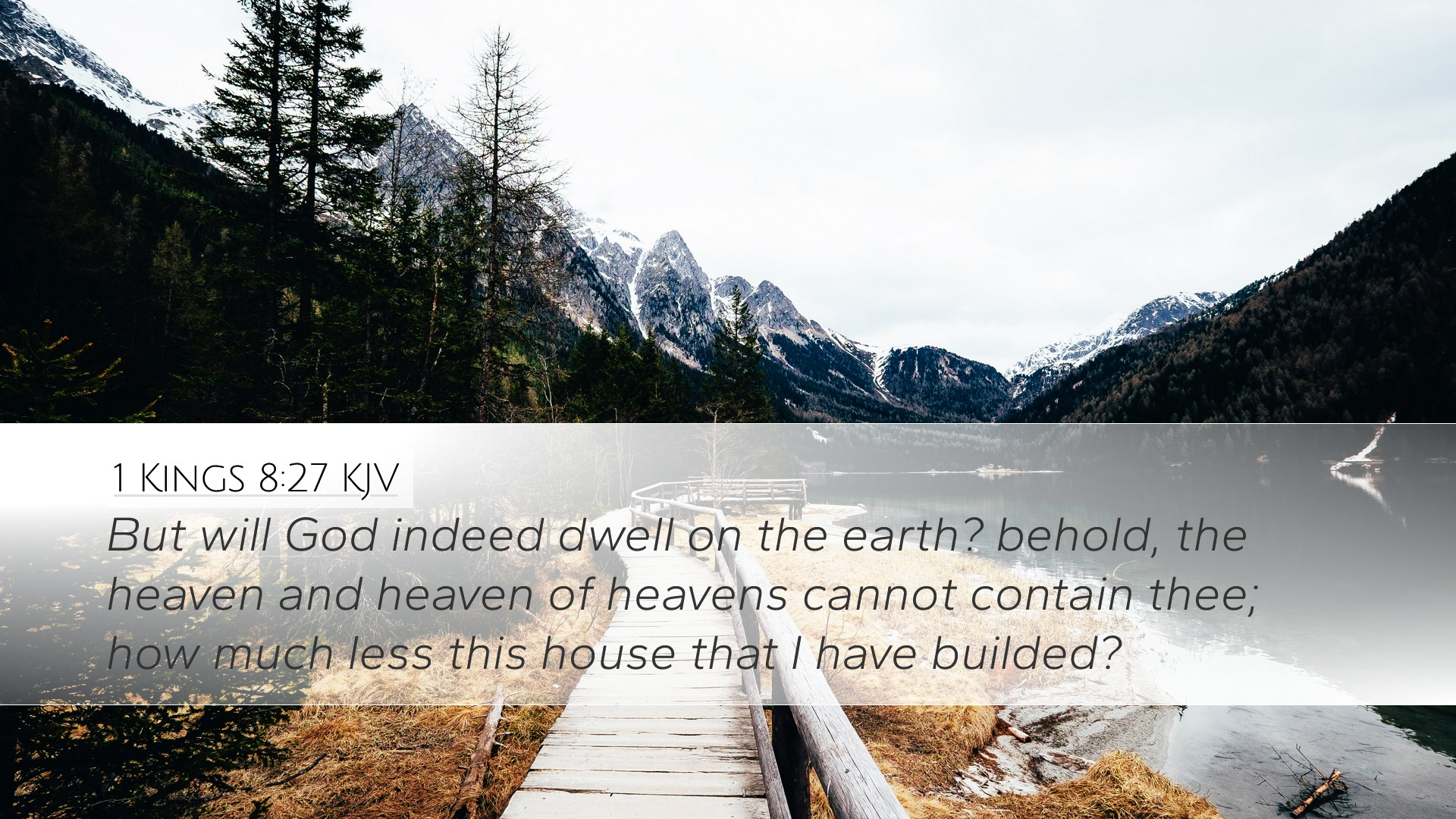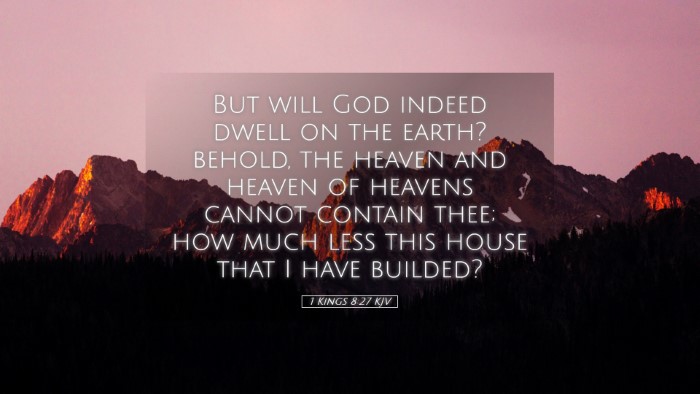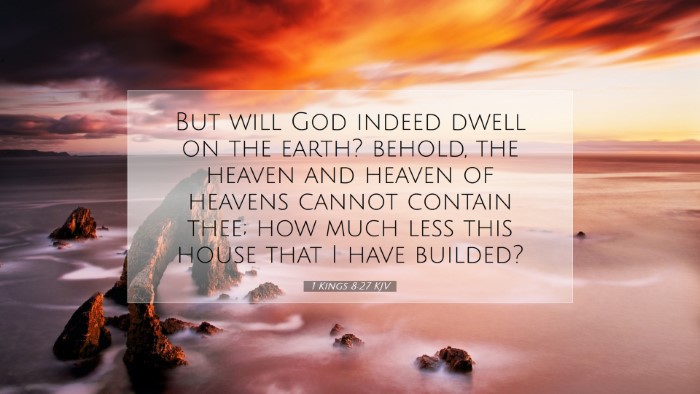Old Testament
Genesis Exodus Leviticus Numbers Deuteronomy Joshua Judges Ruth 1 Samuel 2 Samuel 1 Kings 2 Kings 1 Chronicles 2 Chronicles Ezra Nehemiah Esther Job Psalms Proverbs Ecclesiastes Song of Solomon Isaiah Jeremiah Lamentations Ezekiel Daniel Hosea Joel Amos Obadiah Jonah Micah Nahum Habakkuk Zephaniah Haggai Zechariah MalachiVerse
1 Kings 8:1 1 Kings 8:2 1 Kings 8:3 1 Kings 8:4 1 Kings 8:5 1 Kings 8:6 1 Kings 8:7 1 Kings 8:8 1 Kings 8:9 1 Kings 8:10 1 Kings 8:11 1 Kings 8:12 1 Kings 8:13 1 Kings 8:14 1 Kings 8:15 1 Kings 8:16 1 Kings 8:17 1 Kings 8:18 1 Kings 8:19 1 Kings 8:20 1 Kings 8:21 1 Kings 8:22 1 Kings 8:23 1 Kings 8:24 1 Kings 8:25 1 Kings 8:26 1 Kings 8:27 1 Kings 8:28 1 Kings 8:29 1 Kings 8:30 1 Kings 8:31 1 Kings 8:32 1 Kings 8:33 1 Kings 8:34 1 Kings 8:35 1 Kings 8:36 1 Kings 8:37 1 Kings 8:38 1 Kings 8:39 1 Kings 8:40 1 Kings 8:41 1 Kings 8:42 1 Kings 8:43 1 Kings 8:44 1 Kings 8:45 1 Kings 8:46 1 Kings 8:47 1 Kings 8:48 1 Kings 8:49 1 Kings 8:50 1 Kings 8:51 1 Kings 8:52 1 Kings 8:53 1 Kings 8:54 1 Kings 8:55 1 Kings 8:56 1 Kings 8:57 1 Kings 8:58 1 Kings 8:59 1 Kings 8:60 1 Kings 8:61 1 Kings 8:62 1 Kings 8:63 1 Kings 8:64 1 Kings 8:65 1 Kings 8:66

